
Deborah Bailey Astroth, RDH, BSDH, has been active in dental hygiene in Colorado for more than 40 years. Involved in organized dental hygiene, she has served as president of the Colorado Dental Hygienists’ Association, speaker of the house and chair of the Council on Regulation and Practice; and president of the American Dental Hygienists’ Association (ADHA). Astroth received the ADHA Distinguished Service Award and the ADHA/Warner Lambert Award for Excellence in Dental Hygiene for her experience as a clinician, educator, administrator, consumer advocate, and researcher. Astroth was appointed to the Colorado State Board of Dental Examiners, served as chair, and continues to act as a consultant. Dedicated to increasing access to care, Astroth works with Caring for Colorado Foundation’s SMILES Dental Home Project, a community-based initiative to expand access to oral health care for Colorado’s most vulnerable populations.
What was the catalyst that initiated your efforts to help underserved populations in Colorado access oral health care?
When I was working in clinical practice, several long-time patients moved into nursing care facilities. Their families asked if I could continue to provide oral care and my employer agreed. During each visit, I was asked by the director of nursing if I would look at other residents who were having oral issues. I was amazed at the amount of need. Trying to transport many of these patients to a dental office was not feasible. I saw how the lack of oral care was impacting their nutrition and quality of life. At the same time, my niece, who has a daughter with special needs, was not able to find a dental office that would treat her daughter. When legislation was passed in Colorado to allow dental hygienists to practice unsupervised and to own dental hygiene practices, I established Special Delivery Smiles Inc.
What is Special Delivery Smiles Inc and how did you get it started?
Special Delivery Smiles Inc was the mobile dental hygiene practice that I started to treat nursing care facility, homebound, hospice, and specialneeds patients. I knew the populations I was focused on serving were not those receiving treatment in most traditional dental offices. When the dental hygiene practice legislation was passed, it was controversial. I thought that if I could be successful, perhaps this new model of improving access to oral health care would be accepted throughout the dental community. I purchased mobile equipment, a sterilizer, chair, light, instruments, and a cart to transport everything from my car into the facilities. I met with several dentists who were willing to take referrals from me. In time, I had 32 dentists who were willing to receive referrals and many who were willing to come to the facility, use my equipment, and treat patients. In 1991, as I was preparing to assume the presidency of the ADHA, I knew I could not continue the practice. I met with Gina Jianette, RDH, BSDH, who had been one of my students at the University of Colorado School of Dentistry. She was willing to take over the practice and it continues today.
What do you think are the biggest barriers to ensuring vulnerable Americans can access oral health care?
Vulnerable populations in the United States usually have other health and economic issues that compete with the need for oral health care. In Colorado we have counties that are “dental deserts,” where there are no dentists in the entire county. About half of all Coloradans do not receive routine, preventive oral health care. Since 2015, I have been working with the Caring for Colorado Foundation on the SMILES Dental Home Project. This initiative deploys dental hygienists to community settings to provide routine oral health services. The dental hygienists communicate with an offsite dentist via telehealth technology for patient assessment, treatment planning, and to facilitate treatment for patients with more complex oral health needs. This project seeks to ensure that underserved and high-risk Colorado children, pregnant women, people with disabilities, and vulnerable seniors have access to preventive and therapeutic services by expanding the oral health infrastructure in the most appropriate community setting. In the initial phase, legislation was passed to expand the scope of practice for dental hygienists and to allow for Medicaid reimbursement regarding telehealth technology.
What do you think is the biggest issue facing the profession of dental hygiene?
The disconnect between the evolving health care system and the trends in some of the educational programs. Our society is becoming more medically complex. The oral-systemic link has been well documented. The roles and responsibilities of dental hygienists are expanding, as our health care system evolves. Dental hygienists do not “just clean teeth.” Our education must prepare us to be able to function in a variety of roles beyond clinical practice, to utilize critical thinking skills, to interact and communicate with a variety of other health care professionals, to utilize evidence-based practices, and to stay current on research. I believe that to fully prepare students to best serve our patients, a baccalaureate program should be the minimum entry degree. The trend to compact our education into 18-month programs is a disservice to our students and to the public.
What advice would you give dental hygienists who want to make a difference in their communities?
Be an active member of the American Dental Hygienists’ Association. Your state and component organizations provide opportunities to volunteer in your community. If they don’t, perhaps you are the one to lead the way. Assess your community. Do you have a passion for a population or a project? Start small, get your feet wet, build your confidence, and ask others to join you. There are articles in dental hygiene journals about community projects that have been done around the country. If one sparks your interest, connect with the author and learn whether it might be feasible to recreate in your area. You will enhance your community and you will grow both professionally and personally.
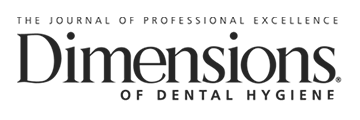
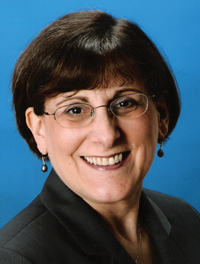
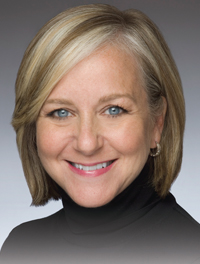
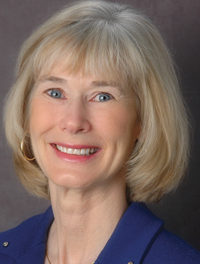
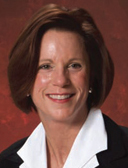
Hi. Michigan pa161 RDHs have had their ability to debride adults take.n away. Only can see underserved kids now. What do u think about that? Thank u
Hi Karen – we will add this question to our Mentor Advice Forum. Please check back soon for a response!
Mentor Advice Forum: https://bit.ly/2muzz7E